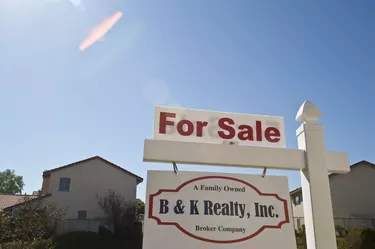
Owing a civil judgment does not strip you of your right to market and sell your property. In some situations, however, a judgment can complicate the sale process and make finding a buyer for your home more challenging.
Court Judgments
Video of the Day
A judgment is a court decision against you and in favor of an individual or business that brought a lawsuit against you. A judgment hurts your credit report and can result in legal consequences such as wage garnishment, but does not automatically affect your home's title or your ability to sell. However, if the judgment holder used the judgment to file a lien against your home, then the property carries a title restriction that you often must clear before you can sell your home.
Video of the Day
Judgment Liens
A judgment lien can prevent potential buyers from obtaining financing in order to purchase your home. Because the lien attaches to the property rather than to you as an individual, the judgment lien would remain attached to the property even after you've sold your home to someone else. This poses too great a risk for a financing bank. Even if a buyer has enough capital to pay cash for your home, the lien gives your creditor the right to seize the property in lieu of payment. Thus, few buyers will purchase a home that carries outstanding liens.
Time Frame
The lien against your home will not last indefinitely. Each state has its own criteria for how long a court judgment remains enforceable. Once the judgment itself expires, the lien expires with it. Some states, such as California, give creditors the right to renew unpaid judgments for a subsequent term. Should this occur, the creditor has the right to re-file the lien against your home after it expires. If the creditor does not renew its judgment and re-file its lien, the lien releases and no longer poses an obstacle when selling the home.
Selling the Home
When you pay off the judgment amount, the creditor will release the lien it holds against your home – freeing up the property for sale. Once the property transfers to the new buyer, the released lien will not longer appear on the property title.If you have a previous court judgment against you, but your creditor has yet to file a lien against your home, you can sell your home with a clear title. Once the property title is no longer in your name, the creditor cannot place a lien against it in an effort to procure payment from you.